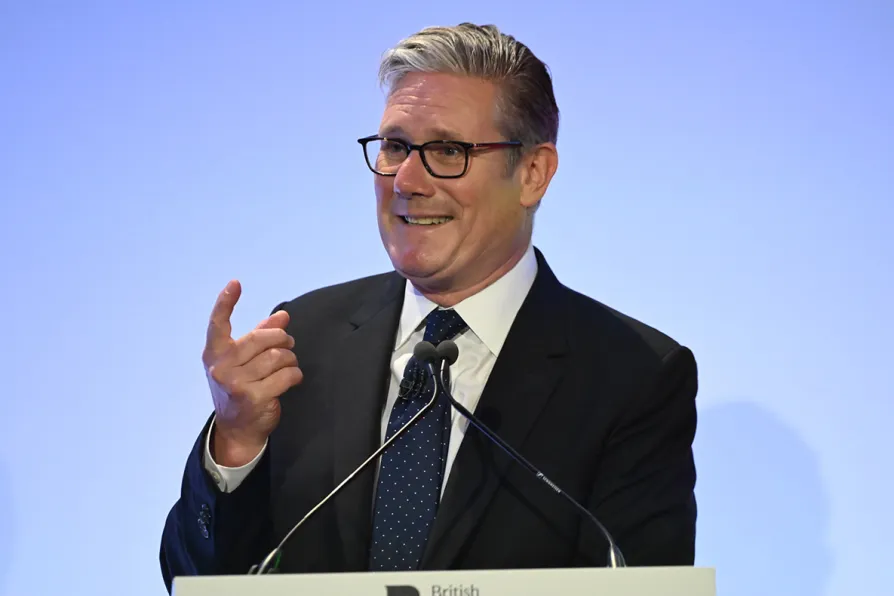Error message
An error occurred while searching, try again later.
 Prime Minister Sir Keir Starmer speaking at the British Chambers of Commerce Global Annual Conference at the QEII Centre, London., June 26, 2025
Prime Minister Sir Keir Starmer speaking at the British Chambers of Commerce Global Annual Conference at the QEII Centre, London., June 26, 2025
LESS than a year into office, Keir Starmer has already driven his premiership into a ditch.
Facing a devastating rebellion over the planned cuts in welfare for disabled people, he is now ducking and diving to buy off his critics by changing the legislation.
If he succeeds, it will still leave his leadership mortally wounded. It will be the second U-turn on his attempts to force fresh austerity at the expense of the poorest down the throats of working people in a month, following the capitulation on pensioners’ winter fuel benefit.
Starmer’s problems follow from two key misjudgments. The first is his determination to back Chancellor Rachel Reeves in her commitment to Treasury economic orthodoxy.
The Treasury’s drive to cut borrowing, and Reeves’s obsession with fiscal rules mainly based on guesswork as to what might be happening to the economy in five years’ time, have pushed the government into cuts in current spending.
That is in large part because it has pledged not to increase taxes on high earners, the wealthy and big business.
So public services are inevitably in the firing line, particularly those that count as “current spending,” that is not classified as investment. So time and again, the poor are asked to pay the price for a conundrum entirely fashioned in Westminster and the City of London.
This is only exacerbated by Starmer’s ever-increasing pledges to spend more and more on the military, with the percentage of national wealth earmarked for arms rising almost every week.
No-one in the labour movement should be under any illusion — this is a guns before butter government, and that is only going to get worse as spending on war goes up.
Then there is the second mistake — the Prime Minister’s reliance, as something of a political neophyte, on the supposed electoral skills of his chief of staff, Morgan McSweeney.
McSweeney’s achievements do not really stand up to much scrutiny. The campaign he directed last year won Labour fewer votes than in 2019 under Jeremy Corbyn, and more than three million less than in 2017.
Now the knives are out for him, since many Labour MPs hold him responsible for the blunders which have led to the welfare cuts farrago. He was apparently deaf to warnings of impending disaster.
That is undoubtedly down to McSweeney’s defining political characteristic — his hatred of the left. That informs his every political position, and beclouds his every judgement.
He has persuaded Starmer to pivot towards Reform voters not because there are many converts to be made there, but because he finds it more congenial than listening to the concerns of left-wing and progressive voters.
Given a choice between a pact with Nigel Farage and one with Jeremy Corbyn there can be little hesitation as to which he would choose. McSweeney’s go-to solution for every political drama is to pivot to attack the left.
All the evidence is that this approach will prove suicidal for Starmer — indeed, it is already doing so, trapping the Premier in a spiral of decision followed by outrage followed by climbdown over and again.
His own back benches are in uproar, and the evidence of opinion polling shows rising support for left-wing challenges to Labour, whether from the Greens or the new left party which Corbyn and others are expected to launch before much longer.
There is little sign that Starmer has the strength, or even the intention, to do what is needed — fire Reeves and mandate a new chancellor to break with neoliberal pieties, send McSweeney packing, and abandon Israel and Nato’s militaristic chest-beating.
If that is right, moves to oust the PM himself cannot long be postponed.










